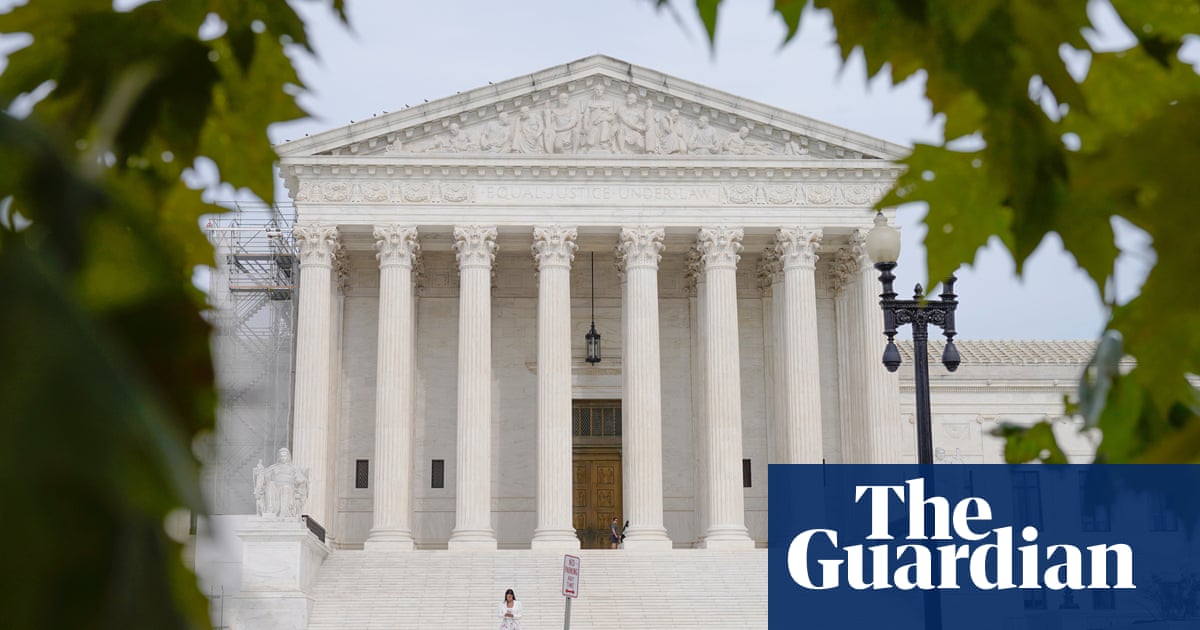Joe Biden worries that the “extreme” US supreme court, dominated by rightwing justices, cannot be relied upon to uphold the rule of law.
“I worry,” the president told ProPublica in interview published on Sunday. “Because I know that if the other team, the Maga Republicans, win, they don’t want to uphold the rule of law.”
“Maga” is shorthand for “Make America great again”, Donald Trump’s campaign slogan. Trump faces 91 criminal charges and assorted civil threats but nonetheless dominates Republican polling for the nomination to face Biden in a presidential rematch next year.
In four years in the White House, Trump nominated and saw installed three conservative justices, tilting the court 6-3 to the right. That court has delivered significant victories for conservatives, including the removal of the right to abortion and major rulings on gun control, affirmative action and other issues.
The new court term, which starts on Tuesday, could see further such rulings on matters including government environmental and financial regulation.



But how long would those appointments be? Many justices have written about how long it took to adjust sitting on Scotus, even if they had plenty of experience on the court of appeals(Sotomayor I think?). So like a 10 year period might work. Scalia and RBG voted together a surprising number of times… So there is something to the experience brought to the table. Thomas’s corruption is just nuts and Alito is frustrating, but the other justices at least have substantiating arguments mostly.
In Germany it’s one 12-year term, generous pension afterwards. Minimum age 40, maximum age 68 or their terms ends prematurely once their successor is appointed. They have to be actual jurists (passed 2nd state exam and/or are a professor of law). Half are elected by the Bundestag (Parliament), half by the Bundesrat (representing the states), in both cases with 2/3rd majority. Ultimately appointed by the Federal President but not in a deciding role but acting as notary of the state.
That 2/3rd majority rule has, because no party can reach it on their own, led to bench seats being allocated proportionally to electoral results, parties picking their favourite out of the possible candidates (the ministry of justice draws up a list of all eligible) and other parties adding the rest of the necessary votes unless there’s an actually important reason to veto a candidate, say, for being an ideologue instead of jurist.
That part would be very hard to transplant over to the US. The rest is the culture of the court itself, they’re notorious for being, well, jurists, not giving a rat’s arse about politics leading to decisions like this, blindsiding everyone on either side of the controversy. A judge may come in with political leanings but they’re going to get beaten into shape by the rest of the judges very quickly.
There’s also other structural differences, e.g. the constitutional court pretty much only doing constitutional review, they’re not part of the ordinary instance chain. They have other prerogatives (e.g. banning parties, deciding cases where constitutional organs sue each other) but constitutional review is pretty much their sole bread and butter.
Thanks for writing all of that, it’s very interesting! I can see how that would be an effective system, but as you said, very difficult to implement in the U.S. anytime soon. Even making some incremental changes would help, as I would think there would be good evidence from systems like yours. We shall see I guess!